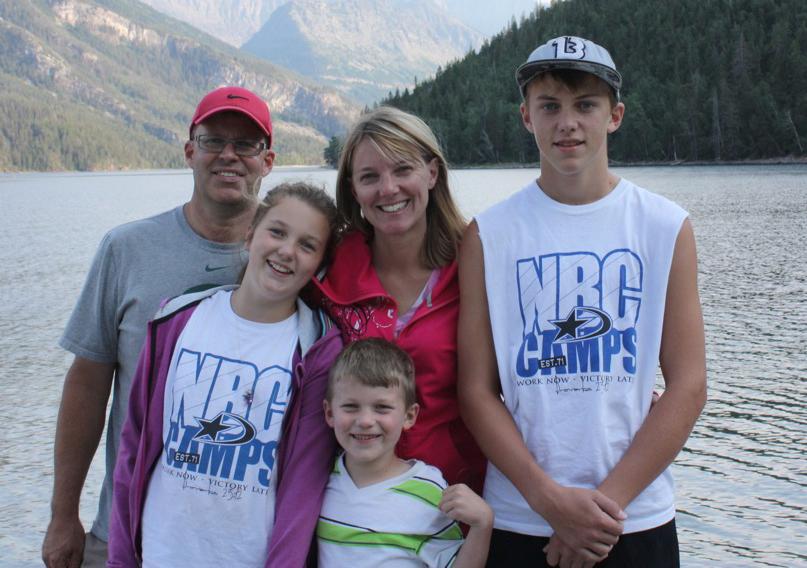Briercrest experience helps alumnus decide on medical career

Andrew Johnson always knew his vocation was to be outside of the church walls.
After high school graduation, with his sights set on eventually entering the business world, he came to Briercrest in 1985 to “broaden his knowledge base.” He left two years later with the conviction that his future career was to be a medical doctor.
“One of the things (Briercrest) did was it did turn my focus a little bit,” he explained. “I think it was really just an ability to sit back and assess the type of impact I wanted to have on society – interactions with my fellow man – how I thought I could best contribute my skills to others. That was really a process of kind of taking the focus off of me and turning outward a bit. I tend to be introverted by nature so the process was a healthy one for me.”
Parts of Johnson’s new focus were a bit overwhelming.
“I knew that I could do business and that I would have no trouble competing in those spheres,” he admitted. “But medicine was a ways off. You have to get your science degrees and you still have to survive the admissions process and all of that. It wasn’t necessarily something I was sure that I could do.”
As it turns out, medicine was definitely something Johnson could do.
The doctor is currently the clinical assistant professor of medicine at the University of Calgary as well as the program director for the adult infectious diseases residency training program in Calgary.
“Most of the work that I do is in persons who have compromised immune systems,” he said. “This has kind of put me out there in a number of spheres. Most of the work I do is with transplant patients. Many of them are susceptible to infections. That’s oftentimes the thing they have the most problems with. But that also puts me into the HIV sphere. Many of these things are global issues. My microbiology training also involves a lot of travel. In international medicine we see all kinds of diseases – parasitic, viral and others coming back from many parts of the world.”
Johnson enjoys the huge variety of issues within his area of medicine.
“There’s almost nothing that we don’t see,” he explained. “We see children, we see adults. We see the elderly, we see pregnant people. We see refugees, we see immigrants. We deal with diseases that have no national boundaries. We deal with global health issues.”
Johnson is also a board member for Compassion Canada, one of the world’s leading child development organizations that partners with the local church in 26 countries to end poverty in the lives of children and their families.
“That activity has more impact in terms of international issues more than anything else that I do,” he said. “This is an opportunity to become involved in international development – international health, child development and all those good things – of course more from a policy perspective as a board member.”
A trip to Thailand with the Compassion board set the backdrop for a powerful experience that brought several streams of Johnson’s life together.
“We had a lot of interaction with members of the Karen tribe over in Thailand,” he explained. “Our largest immigrant group in Calgary is Karen.”
After that trip, Johnson’s church, Rock Pointe Church, facilitated a gathering of people in Calgary to brainstorm how they could help the refugee population in their city.
“We had people from the Mennonite Central Committee, people who worked for immigration in Canada all coming together to do research, to really map out what exactly is the refugee process,” he explained. “Where do these people come from? Where do they go? What do they need? To be able to sit at church and learn about this entire process that I really knew nothing about, even though I was in the medical community – then to do work with Compassion and to have some insights into our largest refugee group in Calgary and to be able to mesh that with the medical side of things – it was a real nice triangle to sort of fill in.”
Johnson hopes this kind of collaboration can happen in the church more often.
“These are the kinds of things I think the church should be involved with,” he exclaimed. “Things we should be doing in our own communities and differences we should be making.”
Johnson says he can even see Briercrest’s influence in his work with Compassion. It turns out that Ian Lawson, a mentor of Johnson’s during his Briercrest years, was the person who connected him to Compassion.
“I probably would not have thought about working with Compassion had I not spent a significant amount of time with Ian,” Johnson said. “It’s interesting how you make connections at Bible school that come back to you years and decades later. Interesting how it all works.”
